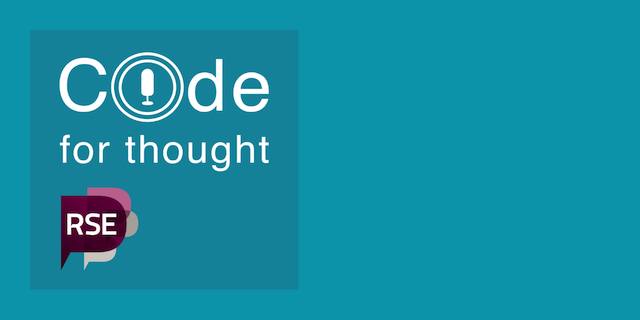Code For Thought

Blogs, News and other bits for the Code for Thought Podcast
Slack ukrse.slack.com @code4thought
The Case for Open Source and Open Data
It all started with me trying to do some scripting work one morning in February. Scripting has become an important part of my podcasting efforts. And with 57 episodes published at the time of writing, there’s been a lot of scripting. For over two years, I subscribed to a bespoke app for this purpose. It’s been an overall good and very smooth experience. It runs on and syncs between desktops and mobile devices. The text editor is simple, well designed and uses markdown formatting. It’s a nice end-to-end solution to create, organise, store and share content.
All well and good.
Until the aforementioned morning, that is. On that day, the licence server of the app, which manages subscription and users, decided to throw a wobbly. It no longer recognised and accepted my subscription, which at that stage was still valid for another 6 months. All of a sudden I was locked out. And instead of working on my content I spent the entire morning trying to restore access to it.
When the licence server gracefully accepted my credentials again, I thought I’d do the right thing and save my scripts elsewhere as a backup. Helpfully, the app has share, save and export functions. Alas, rather than saving the content in the markdown text format it was written in, it is being saved using a proprietary binary format. And exporting gets you PDFs, which isn’t exactly any editor’s dream.
In short, the purveyor of the application had me in a vice by restricting both access (I have to be a paid subscriber) and use (the data format is proprietary or a difficult to edit version) of my content. Which raises an interesting question about who controls and owns the digital content we create (see [3]).
Take books, for example. Purchasing a printed copy means you own the book. Its keep and use is under your control. With digital books on the other hand, you purchase the rights to read the content, but you do not own it. I know this reads like hair splitting. And in practical terms, you may choose not to worry about it. Unless this happens: in 2019, Microsoft closed its Books section (see [2] in the ref section). All purchased books were no longer accessible and e-libraries vanished into thin air. In cases like this, control over your data and content clearly do matter.
Which brings me back to the little wobble I had with the scripting app. The subscription fee I pay not only buys me the rights to use the software. It also stores, shares and organises the data I produce with it. This type of service has created an opportunity for some vendors to lock you into their “ecosystem” by taking effective control over your data and intellectual property.
As more and more companies move into subscription based services, it is more and more important that we retain (and regain) control over our digital work and content. It befalls to us to ensure we select vendors that follow FAIR principles: findable, accessible, interoperable and reproducible. We can do this by choosing products based on open source software and open data standards.
Of course, businesses need to generate revenue to survive and software engineers need to make a living, too. But running a business and using open source software and data standards are no contradiction. In fact, many successful companies are using them in their products and services.
There was a great talk (see [1]) I went to at FOSDEM 2023 given by an investigative journalist who uses open source software for creating tools tackling disinformation [1]. Journalists in the field don’t have the luxury to use software with tight access controls and limitations. They can hardly afford to go through the experience I went through. They need access to their content. Wherever. Whenever.
In terms of my scripting app, I replaced it with tools based on open source software and standard data formats (markdown/text). In fact, this turned out to be quite simple and quick:
- For editing text in markdown format there is an abundance of editors available, from commandline (emacs, vim, nano etc.) to GUI (Visual Studio Code, Atom etc.).
- I created a folder structure that maps to the content to organise my scripts.
- Next, using GitHub, I created a repository to back up my data. Using the GitHub mobile app, I can view and edit the textfiles across my mobile devices.
This, of course, is no longer the seemless end-to-end experience I get with the app. But the additional effort it costs to set up this workflow and run with it is absolutely marginal. And it gives me back what I lost, briefly, before: access and control over my data.
References
-
FOSDEM 2023 Tackling disinformation using opensource software
-
Article on ownership rights of digital objects, 2019